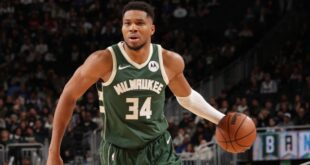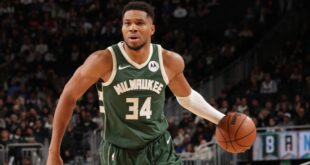**Editor’s note:** This article is featured in Peak, The Athletic’s new platform that explores leadership, personal growth, and achievement through the lens of sports. Peak aims to inspire readers with actionable insights they can apply in both their personal and professional endeavors. Follow Peak here.
During my tenure as head coach at Iowa State, I traveled to Las Vegas one summer to observe Tyrese in a tournament. One of my assistant coaches already had a rapport with him, but this was my first opportunity to see him play up close.
It wasn’t long—maybe just three trips up and down the court—before my assistant and I exchanged looks, silently agreeing: we needed this player.
Tyrese possessed skills like shooting and passing, but it was his overall demeanor that captured my attention. I noted his body language, his personality, and his communication style. Even his interactions with the referees were noteworthy; he engaged them without causing annoyance, establishing a subtle rapport. He was equally engaged with his teammates and coaches. His presence was undeniable.
I believe that the leader of your team must forge connections with both the players and the community, and in that moment, I recognized Tyrese had that capability.
Another hallmark of an excellent leader is humility, which Tyrese demonstrated from day one.
Prior to his freshman season, we organized a reunion for former players. On the last evening, we gathered at a local sports bar for conversation. Tyrese looked across the table at me and remarked, “Coach, this has been amazing. This is why I chose Iowa State—to be around all these former players and learn from their greatness.”
That statement exemplified humility.
His freshman year presented a solid team dynamic. I recall his father, John, advising him to align himself with the best experienced player who had a solid work ethic. That player was Marial Shayok, a fifth-year senior. Throughout that season, Tyrese closely observed Marial’s routine, which taught him the value of hard work at a high level—another sign of his humility.
Early in Tyrese’s freshman year, an NBA scout attended one of our practices. After watching for an hour or two, he summoned me over.
“Do you know who your highest potential draft pick will be?” he inquired.
I was unsure. With players like Shayok and Talen Horton-Tucker, another high-profile freshman, I figured there were multiple candidates.
“The answer is Tyrese Haliburton,” he stated.
“Really?” I replied. “Why’s that?”
At that point, Tyrese had only played perhaps 10 or 11 games. “Look, I’ve seen him throughout practice,” the scout explained. “He connects well with the older players, absorbs their advice, and seamlessly fits into your system. He’s receptive to coaching, maintains a positive demeanor, and exudes energy. He’s going to be your top draft selection.”
It serves as a reminder: people are always observing.
Tyrese’s engaging personality and friendly demeanor made it easy for him to connect with individuals from all backgrounds. His presence not only uplifted him but also inspired his teammates to improve.
After his freshman season, I sat down with Tyrese to discuss his future. He was receiving interest from the NBA, and I wanted to understand his aspirations. It was a straightforward conversation—he had a clear strategy.
“I’m returning to school,” he declared. “I don’t want to go through all those workouts. I need to focus on getting bigger, stronger, and better. If I’m projected to be a lottery pick next year, that’s when I’ll make my move.”
That summer, he represented the United States at the FIBA Under-19 World Cup. Upon returning for his sophomore year, he carried newfound confidence.
He was the type of player who showed up daily with enthusiasm and a vibrant personality. His presence was always felt and heard.
Tyrese radiated positivity, and his energy was infectious—one of his most defining qualities as a leader. He kept everyone energized and engaged.
However, during his sophomore season, he suffered a wrist injury. After attempting to return, he re-injured it, and we realized further play wasn’t wise. Surgery was necessary.
At that point, it was clear he was destined to be a lottery pick. Many players would have opted to leave school to prepare for the draft independently, yet when we reconvened to discuss his plans, the conversation was refreshingly simple: he was committed to the NBA Draft but insisted on staying with the team.
“Coach, I’ll be there for every practice and every game. I’m not going anywhere. We’re in this together,” he said.
His mother, Brenda, continued attending every game, and despite wearing a cast, Tyrese remained animated and fully engaged. He understood the importance of being a leader and staying connected to his teammates.
A couple of months ago, I experienced a layoff from Murray State. Around that time, Tyrese sank a game-winning shot against the Milwaukee Bucks. The following day, while picking up my 10-year-old from school, my phone rang. It was Tyrese.
“Hey, Coach, I just wanted to check in,” he said. “I’m thinking about you. If you need anything, don’t hesitate to reach out.”
When you lose a job, your whole family feels the impact. Hearing Tyrese on the phone reassured my kids that their dad had made a positive impression, and that helped me in my healing process.
That’s what true greats do—they uplift others during tough times. That is the essence of leadership.
— Adapted from a conversation with Jayson Jenks.
 NBA News NBA News, Match Reports and Updates
NBA News NBA News, Match Reports and Updates



